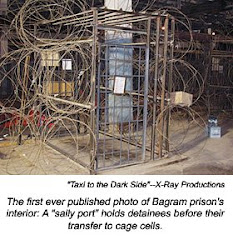UN HUMAN RIGHTS CHIEF PLEDGES CONTINUED SUPPORT FOR NEPAL
The top United Nations human rights official today voiced her continued support for Nepal as it rebuilds after a decade-long civil war, with the mandate of the Office of the High Commissioner for Human Rights (OHCR) in the South Asian nation being extended until next year.
In her letter to the Nepalese Government confirming her acceptance of that agreement, High Commissioner Navi Pillay wrote that OHCHR “remains strongly committed to further strengthen the national human rights protection system, in particular the National Human Rights Commission, through continued cooperation and capacity building,” according to a press release issued in Kathmandu.
The Office’s mandate is now set to expire on 9 June 2010.
Last weekend, a new UN-backed project was launched to help heal the scars left by Nepal’s civil war, using transitional justice mechanisms to spur reconciliation.
The "Peace through Justice" initiative, financed through a $2 million grant from the UN Peace Fund for Nepal (UNPFN) seeks to aid in setting up effective transitional justice systems provided for in the Comprehensive Peace Agreement, the 2006 pact ended the conflict between forces loyal to the former King of Nepal and Maoists.
OHCHR said that “a systematic approach to dealing with the past can help societies heal and work their way back to normality. Establishing the facts of the conflict, acknowledging the losses suffered by the victims and providing a platform for justice helps end impunity and aids reconciliation.”
The project, which will run initially for 12 months, will support the Ministry of Peace and Reconstruction (MoPR) to set up bodies, such as the Commission on Inquiry on Disappearances, and will focus on documenting human rights and international humanitarian law violations committed during the conflict, which claimed some 13,000 lives.
Secretary-General Ban Ki-moon, in his latest report on Nepal’s request for UN assistance in support of the peace process, wrote that progress on key elements in Nepal’s peace process has slowed down or stalled altogether owing to the country’s recent political crisis.
“The two major tasks at the current stage of the peace process are the integration and rehabilitation of the Maoist army personnel and the drafting of the new constitution,” he said, noting that efforts to advance on both these fronts slowed with the onset of the crisis sparked by the resignation of Prime Minister Pushpa Kamal Dahal (“Prachanda”) in early May, which occurred one day after the Chief of Army Staff – who he had fired – was reinstated.
A senior leader of the Communist Party of Nepal-Unified Marxist-Leninist (UML), Madhav Kumar Nepal, was elected Prime Minister on 23 May and subsequently formed a new coalition Government with the support of 21 other political parties but without the participation of the Maoists.
“The modest progress witnessed in some aspects of the peace process during the first quarter of 2009 has stalled against a backdrop of mistrust and a further deterioration of relations among key stakeholders, notably between UCPN-M [Unified Communist Party of Nepal-Maoist] and the other major parties and between UCPN-M and the Nepal Army,” says the Secretary-General, proposing a six-month extension of the United Nations mission to continue assisting with remaining tasks.
(UN: July 23, 2009)
Abonneren op:
Reacties posten (Atom)

Geen opmerkingen:
Een reactie posten